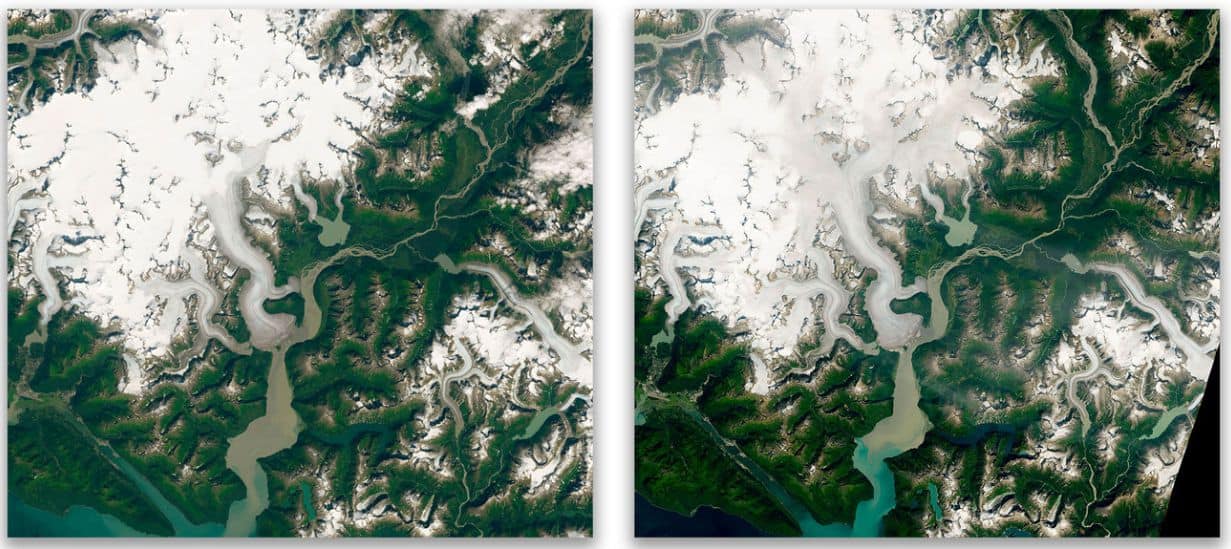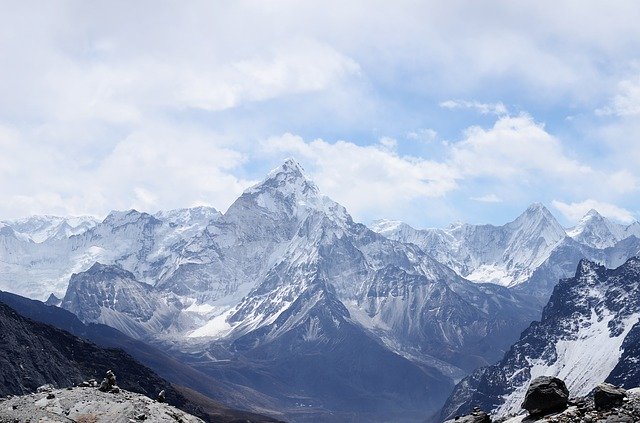The 21st century is the moment in which climate change is such that high-temperature records are being reached with increasing frequency and glaciers are perishing, even when they grow it is entirely good news. Now NASA has published an analysis in which it shows how the thickest glacier on the planet is also melting in the last five years.
As we said, in recent years we are seeing how global warming is evident in part by how it affects glaciers, with facts like the events that emerge in Swiss glaciers. What they have now shown is how the Taku Glacier in Alaska has grown for nearly 50 years to decreasing its mass.
A picture is worth (or should be worth) more than a thousand words
Although the alarm about global warming is not shared by everyone (not even among the scientific community), there are facts that should at least make us think. The thaws or breaks of large ice fragments are not always a consequence of climate change, but the disappearance of entire glaciers such as Okjökull in Iceland last July (now … there is a plaque) is the least devastating news.
What the scientists of the NASA Earth Observatory now show us is the progressive waning of the Taku Glacier, showing the images taken from August 2014 to August 2019 in a recently presented work. Taku is part of the 20 largest ice field glaciers in that region and one of the thickest on the planet, with a thickness of 1,480 meters.

Image by Lauren Dauphin (NASA Earth Observatory)
The photographs show how, since Taku (1946) is being observed, the ice shelves that touch the river are shrinking for the first time in those 50 years. It is not a dramatic reduction yet, but according to the glaciologist Mauri Pelto (author of the work that has been studying that ice field for 30 years), these signs of decline arrive 80 years before the predictions, being Taku the only area that had not shown signs of waning of the 250 that the glaciologist has studied.
Until 1988, the Taku glacier had been gaining mass more or less at 0.3 meters per year, decreasing the pace from that point. The growth stopped between 2013 and 2018, reducing as of 2014. Changes that, according to Pelto, coincide with one of the warmest July ever recorded.
Another notch in the climate change record book
Antarctica is currently melting three times faster than 25 years ago, losing according to NASA about 127 gigatons (an extraordinary volume measure equivalent to 1,000 million tons) per year. There are already many data that indicate the severity of climate change, with the risk that it is one of that serious news that ends up being normalized by abundance while there is still, in an explainable way, denialism.
Scientists try to think of solutions such as the construction of a gigantic underwater frozen wall, but these are not usually feasible alternatives, in fact, 11,000 scientists recently said that what needs to be done is “to be less people”. Now we have another milestone in the record of lost battles that we carry with what we ourselves have created, we will see if at any time the reaction can at least slow the pace of these sad records.
